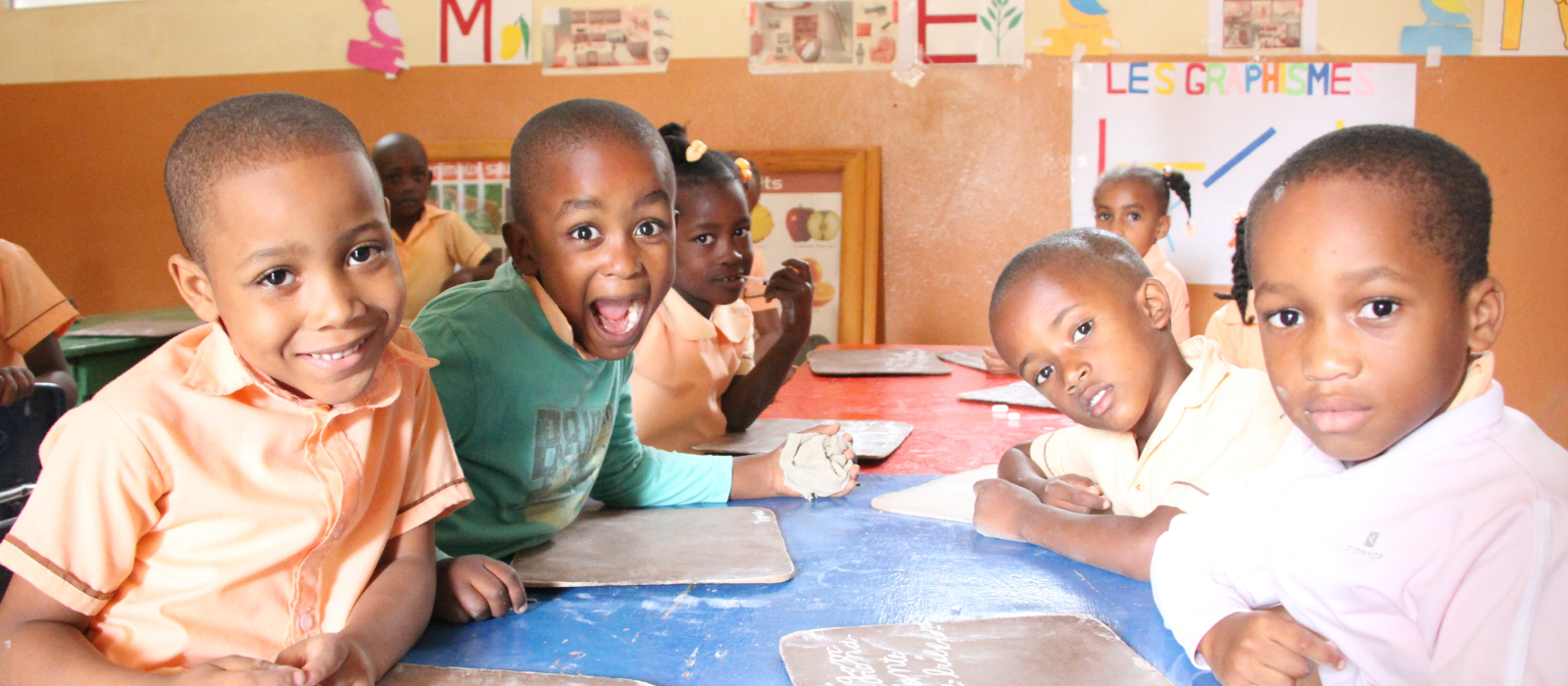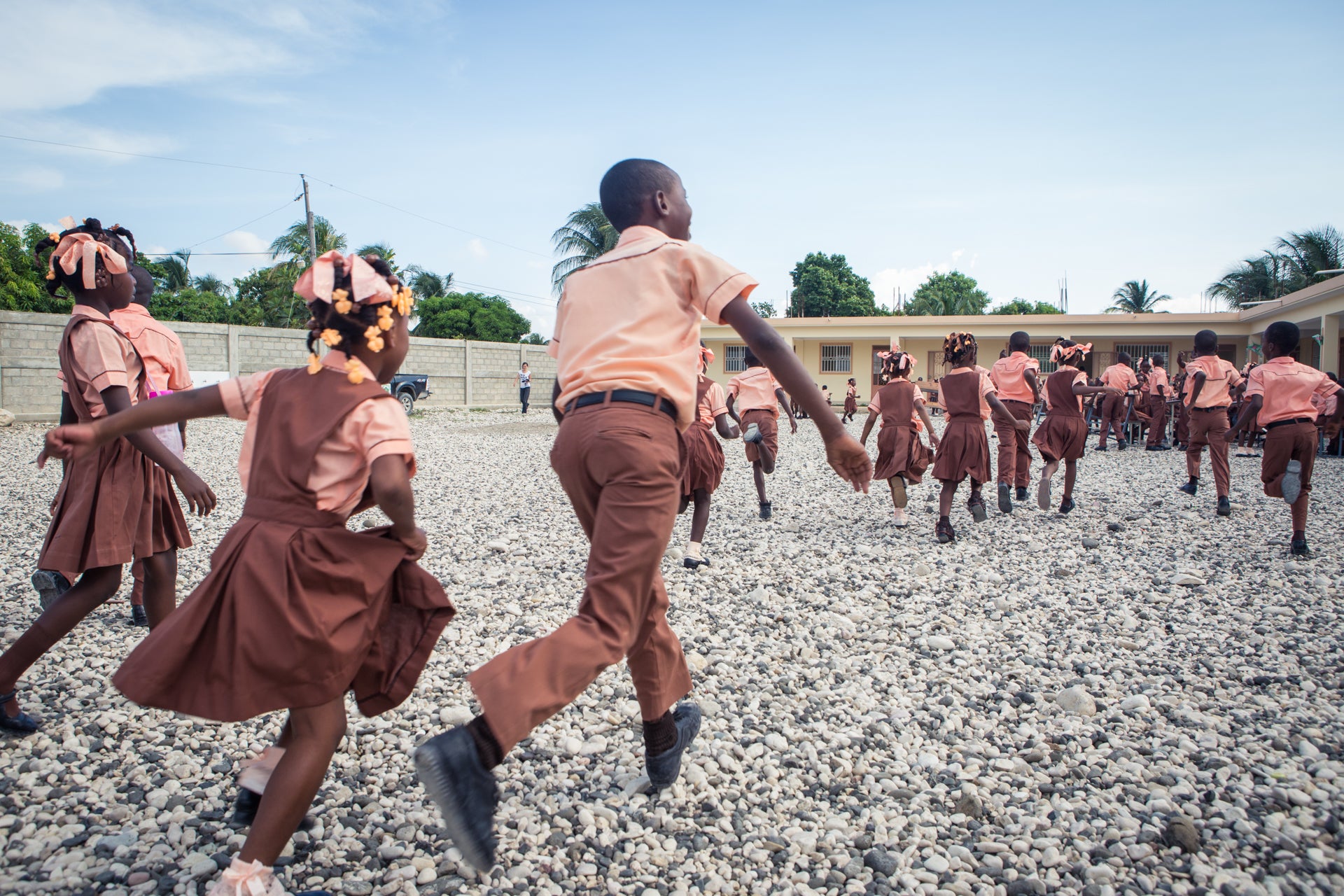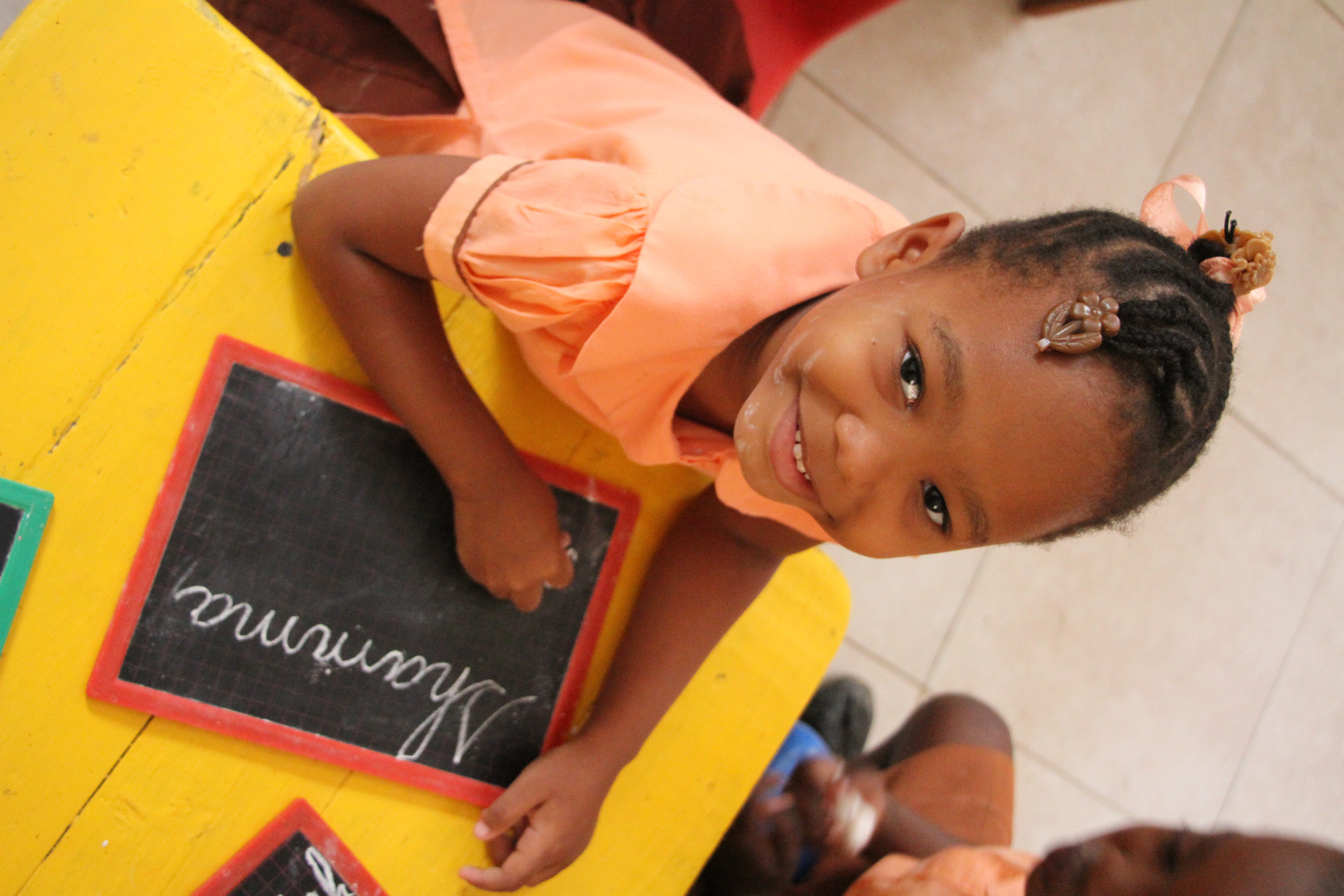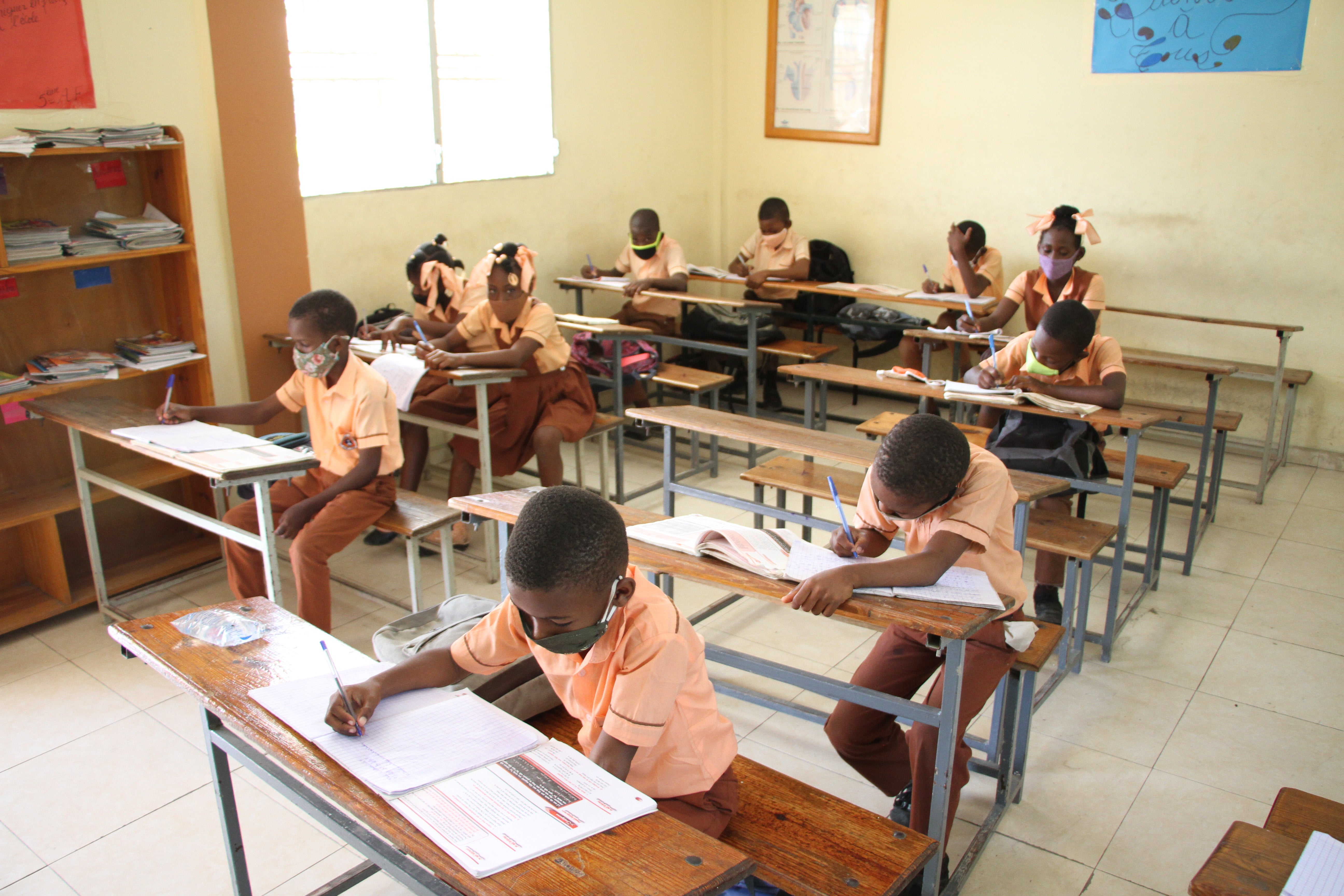Day 16
1 day of school education and a meal for a child in Haiti
 Fighting Poverty with Education
Fighting Poverty with Education


Offering children and young people in Haiti a chance


Sänger Max Mutzke stellt dir sein Lieblingsprojekt vor
need
Education and school meals for disadvantaged children and young people in Haiti
activity
The local NGO Fondation St. Luc provides free schooling and offers children and young people a hot meal every day
Measurable performance
Number of students who are taught and enjoy a hot meal every day
Result
Compared to the previous year, it is expected that the measures will enable around 360 more children and young people to attend school
Systemically relevant impact
More children and young people from disadvantaged families go to school - their educational opportunities and future prospects are improved
background



The good deed
About Haiti
Port au Prince
Capital city
11,724,763
population
as of 2023
1,693.1
Gross domestic product
per capita per year in USD
as of 2023
0.552
Human Development Index
(Human Development Index)
as of 2023/2024




